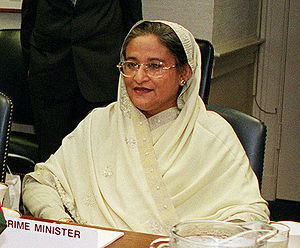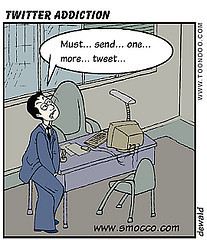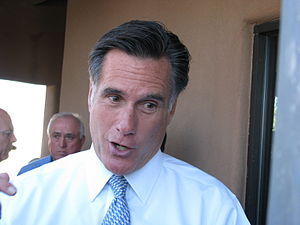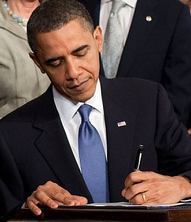Claude Forthomme's Blog, page 52
October 31, 2012
Euro Crisis: Time for Greece to Exit the Euro?

ATHENS, GREECE - FEBRUARY 12: People clash with police (Image credit: Getty Images via @daylife)
Is Greece about to fall out of Europe? Is "Grexit" (Greek exit from the Eurozone) a solution for the Euro-crisis?
A Grexit would cost the Euro-zone "several hundred billion euros" according to former Deutsche Bank Chief Executive Officer Josef Ackermann: it's definitely something that bankers don't relish.
As I am writing, the finance ministers of the Eurozone are holding a conference call on Greece to figure out how to avoid a Grexit. Views are still widely divergent on how to proceed and don't expect a solution to emerge today. But there's no doubt that the next four weeks will be crucial.The IMF suggests Greece needs another debt cutback, Germany is against it. At most, it seems it will consider a debt buyback (this is known as the "Asmussen Plan").
Meanwhile rumors are flying around the Internet, see articles below. It would seem the Troika (i.e. experts from the IMF, the European Central Bank and the European Commission sent to Athens to oversee conditions to release bailout money) whose report is eagerly awaited, is about to tell the Eurogroup of financial ministers: “It is clear that Greece is off track and there is no chance they will
cut the debt to 120 percent of GDP in 2020 as envisaged. It will be
rather 136%. New prior actions will be needed, on top of the existing
[ones] before any new tranches of eurozone and IMF emergency loans to Greece can be paid. " Bloggers have zeroed in on the sentence I've bolded here. Adding to the buzz, German news magazine Der Spiegel reported in this week’s edition that the Troika is to propose a debt restructuring for Greece that would require public-sector lenders to take heavy losses - meaning you and me, as taxpayers, will get hit in our pocketbook.
That's something that stirs up Germans who from the start of the crisis have felt no sympathy at all for the Greeks whom they view as "profligate and corrupt".
Now we don't know yet whether this conclusion will be part of the Troika report and even if it were, there's really nothing new in this. Only one fact is certain: if the Greek government doesn't get the next tranche of its €130 billion bailout plan, i.e. 32 billion Euros it needs to stay solvent, in 10 days funds will have dried out, the government machine will grind to a halt.
Last week the statistics were finally in proving once and for all the uselessness of austerity measures: both the IMF and Eurostat reports show that despite the push for austerity, EU debt has continued to increase. Greece is among the European countries that have made most progress in closing the budget gap, yet overall debt load has soared. Greece’s ratio of debt to gross domestic product has hit a new high of 170 percent. Experts all agree now (including the IMF) that a less rigid stance on austerity is needed, that debt relief is inevitable over the long run if Greece is to return to meaningful growth - the only way for it to repay its debt obligations.
But is debt relief around the corner? Hardly. European politicians are mum on the subject, they fear losing votes from their taxpayers who'd have to foot the bill. In the meantime the situation for average Greek citizens is steadily getting worse.
In the last three years since the launch of austerity policies,
the Greek economy has contracted by 25 percent, unemployment has reached
the highest levels in Europe, together with Spain, hitting young
people the hardest: one out of two is unemployed. The young Greeks that
have both an education and experience are leaving their country to find
work abroad: Greece is leaking its young and brave.
Time for Greece to exit the Euro? It would seem the cost exacted from Greece to receive bailout funds may have now far exceeded the (potential) benefits. Let me count the ways, just hitting on the most obvious "wounds" and I'm sure my Greek readers can add more to this necessarily short list:
400, 000 children go hungry. That's right, in the "rich" Euro zone, there's so much poverty that people go actually hungry and some 400,000 children in Greece are affected, that's almost one third of the total population under 15 years old! People stand in line for donated food, something no one has seen in Europe since World War II. The government has just passed a law allowing supermarkets to sell expired food at a discount;
the National Health system has collapsed and people can't get medicine or treatment; there are some harrowing cases of cancer gone untreated for too long with heart-breaking suffering, cases recently documented in the New York Times reporting the remarkable selfless support given by some generous Greek doctors to the patients who cannot pay for their cures;
the education budget will be hit: for example, serious consideration is reportedly given to suppressing some 2000 posts of assistant professors at university level; cutting back on education and research is a sure recipe to consign a country to a permanent under-developed status;
the cultural heritage and historical monuments are threatened by austerity cuts, maintenance has already ground to a halt; clearly such an approach threatens one of Greece's major sources of wealth: tourism;
business can't get the credit it needs to run daily operations as banks are emptied of cash and face collapse; as a result, the number of bankruptcies of otherwise perfectly healthy businesses is on the rise;
the lack of savings is threatening the economy: for the past three years, Greeks have pulled their savings out of their home banks and placed their money abroad; there's a list of some 2,000 Greeks who have opened accounts in Switzerland that is at the center of an on-going growing scandal exposing a culture of corruption, with several Greek politicians and the government trying to cover up for their buddies (business leaders, journalists, architects, employees of the Ministry of Finance...);
the single industrial sector that is still going strong in Greece, shipbuilding, enjoys full immunity from taxes: historically, no Greek government has ever touched it, no austerity measure, no tax is envisaged, nothing; as a result, no relief or push can be expected from this sector that is "frozen" out of the economic picture...
the political rise of the neo-nazi Golden Dawn party closely linked to the police is a growing threat to democracy: most recently, 15 anti-fascist protesters arrested by the police after a clash with Golden Dawn activists reported that they had been tortured and humiliated in Abu-Ghraib style while detained at the Attica General Police Directorate; also, the journalist who uncovered the scandal of the Swiss bank accounts is facing trial three days after his arrest - an unusually fast response from the authorities - while Golden Dawn party members accused of wrongdoing go free and relatively unhampered (trials facing them take a slow course as usual).
So should Greece exit the Euro? No so simple. On the other side of the balance, a Grexit would be extremely costly for Greece:
10 percent imediately lopped off gross domestic product in the first year after a return to the Drachma, according to the IMF;
the new Drachma would be worth between 30 and 50% of the Euro according to most economists;
inflation would explode as consumers and business would have to pay 50 to 70% more for imported inputs: Greece imports nearly 40 percent of its food, most of its medicine and almost all of its oil and natural gas;
Greece exports very little: exports of manufactured products account for only 10 percent of
gross domestic product, compared with a 30 percent average for the rest
of the euro zone.
That means the boost from a cheap Drachma would have relatively limited effects on exports. Greece is not well poised to take advantage of
devaluation: setting aside shipbuilding,
nationalization policies that followed the troubled 1970s has caused an
erosion of the industrial base, a flight from agriculture and absorption
of redundant employees in the government bureaucracy (which explains
the exceptionally large government bureaucracy).
But Greece draws income from other sources, like tourism and it does successfully sell its olive oil and dairy products (yogurt, cheese) abroad. Could a cheap currency help kick start economic growth, the way it did for Argentina? Not so certain. There may well be a trickle down effect on the rest of the economy but it's likely to be both small and take time.
Also consider the logistics: a departure from the Euro cannot be accomplished overnight. It requires complex legal procedures generating tremendous uncertainty and more capital flight. Already, big operators in Greece like Vodafone and Diageo bring back their cash to Britain every day to limit their exposure. Also, as mentioned above, since the beginning of the crisis everyone, from French and German banks once very present in Greece to Greek citizens, have taken their money out of Greece to safe havens and foreign banks have sold off their holdings.
So is the scene ready for Grexit? Tourism operators, hoteliers, business leaders in Greece are understandably against leaving the Euro: a grexit would be "bad for business".
Would it be bad for the Eurozone as a whole? Europeans are weary: what about the domino effect? Could Grexit bring down the whole Eurozone? While this should properly be the subject for another pos, here's a hint: Greece only accounts for some 2 percent of overall Eurozone gross domestic product, but it's not a simple matter of numbers...
My opinion? I think Greece should stay in but the bailout should be done keeping in mind:
- the population's basic needs in terms of health and education: hunger and physical suffering in 21st century Europe is not acceptable;
- fiscal equity: everyone should contribute, including the rich and shipbuilders; tax evasion is not acceptable;
- preserving the cultural heritage and historical monuments for future generations and of course tourism: it remains one of Greece's most important sources of income.
Greece is the cradle of Europe...
What is your opinion?
Related articles
 BREAKING....Disaster for Athens as Troika advises EWG to reject austerity plans
BREAKING....Disaster for Athens as Troika advises EWG to reject austerity plans Greek Creditors May Be Forced to Take Haircuts
Greek Creditors May Be Forced to Take Haircuts Dutch Not Willing to Give Greece More Time, De Jager Says - Bloomberg
Dutch Not Willing to Give Greece More Time, De Jager Says - Bloomberg IMF concedes Greece will miss debt target
IMF concedes Greece will miss debt target Greece spirals towards modern Great Depression
Greece spirals towards modern Great Depression Greece allegedly faces a Sunday evening deadline to bow down to the Troika -- or else no more money ! Live blog from The Telegraph - news and data from Europe , focus on Greece , Spain , Italy and Ireland
Greece allegedly faces a Sunday evening deadline to bow down to the Troika -- or else no more money ! Live blog from The Telegraph - news and data from Europe , focus on Greece , Spain , Italy and Ireland Greece could leave eurozone within six months - Sweden's Anders Borg
Greece could leave eurozone within six months - Sweden's Anders Borg Germany, France Say November Key to Keeping Greece in Euro - Bloomberg
Germany, France Say November Key to Keeping Greece in Euro - Bloomberg EU Convenes on Greece as Samaras Coalition Squabbles - Bloomberg
EU Convenes on Greece as Samaras Coalition Squabbles - Bloomberg Germany Supports ECB Greek Debt Buyback Plan, Rejects Write-off - Bloomberg
Germany Supports ECB Greek Debt Buyback Plan, Rejects Write-off - Bloomberg

Published on October 31, 2012 03:41
October 24, 2012
Even a Bad Review for Your Book Will Make People Want to Read it!

Cartoonists like to debate (Photo credit: aaipodpics) and so do writers!
That book reviews boost sales is conventional wisdom. Authors are always on the look out for reviews and when bad ones roll in they are (often) desperate.
Should you worry over a bad review? Will it hurt your sales and kill your baby, I mean your book? Authors have seen a drop in sales as a result of it.
Or so they claim.
Amazon's director of author and publisher relations, Jon Fine begged to disagree at the recent Digital Book World conference on Book Discoverability and Marketing, held in New York. He started out by listing many interesting things about the buzz that makes your books sell, spelling out for his audience of hundreds of book marketers the top three ways they could make sure to get the most out of Amazon:
(1) availability of the book: a quality e-book including in print,
(2) metadata: meaning everything that helps sell your book online, including a catchy cover and relevant keywords/tags,
(3) improved author pages: including video links etc and giving support to authors, sharing sales data with them so that they can make informed marketing decisions.
Then he said something that was truly arresting: a greater volume of reader reviews is more valuable, he told the audience than a small number of reviews with more stars.“On our site, the more people are talking about your book the better,” said Fine. “Even a bad review will make people want to read your book.”
Say that again?
Bad reviews will sell my book?
Okay, I'm going to try a little experiment here. I recently got 3 reviews for my A HOOK IN THE SKY (they're on Readers Favorite, not up yet on the Amazon site - it takes a little time to upload...). Just giving you the evaluation paragraph (for info about the book, go to the page tab under the blog title). Tell me which you like best and makes you want to look at the book (I'm not saying buy it, more modestly: just take a look):
5* review: ..."Hook in the Sky" is a deeply thoughtful story of one man's life and how he comes to peace with his mission in life. Main character Robert is a longtime humanitarian worker and a gifted artist, but he and his art work never quite fit in with the designs of those around him, his wife Kay, longtime friend Natasha and her daughter Nour. All the characters in "Hook in the Sky" are well-created, the dialogue between and among characters is authentic, and the plot line flows believably to the end...
4* review: ...Robert is a very complex person, not entirely sympathetic but always well intentioned and generous, but this is a novel of prickly, difficult characters. They are convincingly portrayed and their interactions are inevitable given the personalities at play. There is an interesting, somewhat quirky plot, centred on art and the novel provides some interesting discussion of genres of art. It’s unpredictable which adds extra interest to this well written and entertaining book. It is set in France, New York and Italy and the settings are atmospheric and beautifully created.
2* review: ...Although the book has fascinating details about the art world, museums and relationships, I found this a challenging read. I found Robert self-absorbed, self-indulgent and devoid of engaging personality. All his new pursuits become baggage he would rather do without and yet he continues to follow his wants – never quite finding the utopia of his dreams. The characters become very real through the story as Claude describes each one meticulously and you sense you really know them. I personally found the read almost depressing as I waited for Robert to find the happiness he longs for...
The 2*star reviewer quite clearly is exasperated by Robert, at the end she even adds a note directly to me, saying. "Your attention to detail is worth much merit, however I found the Robert character very self-centred and selfish - I became more and more angry with him as I read. He had so much and yet 'missed it' with his ego-centred thinking."
I thought that was amazing: this person got so upset by my protagonist that she gave my book a low 2*! Personally, I take it as a compliment: I had made Robert so real for her that she couldn't bear him. But would such a rating (and criticism) make you want to buy the book or reject it?
Tell me if I shot myself in the foot by sharing this information...I'd love to have your opinion in the comments below but I'm providing a poll to make it easy for you to answer:
Which Review Made You Want to Read the Book?
the 5 star review
the 4 star review
the 2 star review
All three combined
None
pollcode.com free polls
Related articles
 On Bad Reviews
On Bad Reviews How To Get Amazon's Top Customer Reviewers To Review Your Book | The Creative Penn
How To Get Amazon's Top Customer Reviewers To Review Your Book | The Creative Penn Why I never (almost) do book reviews anymore.
Why I never (almost) do book reviews anymore.

Published on October 24, 2012 01:32
October 21, 2012
Save the Antarctic,Make it a Marine Sanctuary!
Plans to turn part of the Antarctic, the last pristine ocean on earth, into a marine sanctuary are at risk!

Here's a message from Leonardo DiCaprio, with the Avaaz team:
"Within days, governments could begin turning wide stretches of the Antarctic ocean into the world's largest marine sanctuary, saving the habitat of whales, penguins, and thousands of other polar species from industrial fishing fleets. But they won’t act unless we speak out now.
Most countries support the sanctuary, but Russia, South Korea and a few others are threatening to vote it down so they can plunder these seas now that others have been fished to death. This week, a small group of negotiators will meet behind closed doors to make a decision. A massive people-powered surge could break open the talks, isolate those attempting to block the sanctuary, and secure a deal to protect over 6 million square kilometers of the precious Antarctic ocean.
The whales and penguins can't speak for themselves, so it's up to us to defend them. Let's change negotiators' minds with a massive wave of public pressure -- Avaaz will surround the meeting with hard-hitting ads, and together we'll deliver our message to delegates via a deafening cry on social networks.
Sign and share this urgent petition."
To sign the petition, go to:
http://www.avaaz.org/en/save_the_southern_ocean_5/?cAXfecb
I just signed, hope you join me!
Related articles
 Leonardo DiCaprio Asks for Help to Protect the Antarctic Ocean
Leonardo DiCaprio Asks for Help to Protect the Antarctic Ocean
 Green groups press Antarctic haven
Green groups press Antarctic haven
 Antarctic sanctuary plans stumble > U.S., New Zealand fail to compromise on Ross Sea marine sanctuary.
Antarctic sanctuary plans stumble > U.S., New Zealand fail to compromise on Ross Sea marine sanctuary.
 Plans for giant Antarctic marine sanctuary falter
Plans for giant Antarctic marine sanctuary falter




Here's a message from Leonardo DiCaprio, with the Avaaz team:
"Within days, governments could begin turning wide stretches of the Antarctic ocean into the world's largest marine sanctuary, saving the habitat of whales, penguins, and thousands of other polar species from industrial fishing fleets. But they won’t act unless we speak out now.
Most countries support the sanctuary, but Russia, South Korea and a few others are threatening to vote it down so they can plunder these seas now that others have been fished to death. This week, a small group of negotiators will meet behind closed doors to make a decision. A massive people-powered surge could break open the talks, isolate those attempting to block the sanctuary, and secure a deal to protect over 6 million square kilometers of the precious Antarctic ocean.
The whales and penguins can't speak for themselves, so it's up to us to defend them. Let's change negotiators' minds with a massive wave of public pressure -- Avaaz will surround the meeting with hard-hitting ads, and together we'll deliver our message to delegates via a deafening cry on social networks.
Sign and share this urgent petition."
To sign the petition, go to:
http://www.avaaz.org/en/save_the_southern_ocean_5/?cAXfecb
I just signed, hope you join me!
Related articles
 Leonardo DiCaprio Asks for Help to Protect the Antarctic Ocean
Leonardo DiCaprio Asks for Help to Protect the Antarctic Ocean Green groups press Antarctic haven
Green groups press Antarctic haven Antarctic sanctuary plans stumble > U.S., New Zealand fail to compromise on Ross Sea marine sanctuary.
Antarctic sanctuary plans stumble > U.S., New Zealand fail to compromise on Ross Sea marine sanctuary. Plans for giant Antarctic marine sanctuary falter
Plans for giant Antarctic marine sanctuary falter

Published on October 21, 2012 07:41
October 15, 2012
Almost $35 million for an Abstract Painting!
This just happened in London at Sotheby's evening sale (12 October 2012): Gerhard Richter's Abstraktes Bild achieved over £21 million, that's almost $35 million, a world record for a living artist...I know, you're all thinking of Mark Rothko, Pollock, Warhol or Klimt, whose paintings have in recent years sold near or above the $100 million mark and sometimes even climbing close to $150 million.
But here we're speaking of a LIVING artist, and that's simply amazing!
This is a painting owned by rock star Eric Clapton. He must have celebrated this past week-end. Champagne! Caviar! Perhaps Richter wasn't quite as happy: after all, when he did this painting some 15 years ago, it didn't bring him anywhere near this sum! But there's a big consolation now: he can ask a lot more for his next work and get it!
Did that celebrity ownership help the sale? Perhaps, but I don't think so. There's an objective fact at work here: Richter is quite simply one of the greatest late 20th century artist still alive, hanging in there - Lucien Freud was the other, but he's no longer around...
So we're left with Richter...Watch the video, you'll catch the excitement among the One Percent!
Makes you think, doesn't it?
PS: I was just informed (mind you, like any good NYT journalist I won't give out my source, but believe me it comes from someone in the know) that when Richter started out with his abstract paintings in the 1980s, nobody wanted to buy them! Up to that point, he'd made his name making eerily blurred, highly poetic figural paintings derived from black and white photographs, and this sudden turn to abstraction was a shock and it was rejected by his clients. At the time, you could have gotten one of his abstract paintings for maybe as little as $5,000 or $10,000!
Certainly, he's come a long,long way! And it goes to show that people are not generally good at picking the winners...
Related articles
 ArtsBeat: Gerhard Richter Painting Sets Record Auction Price for a Living Artist
ArtsBeat: Gerhard Richter Painting Sets Record Auction Price for a Living Artist
 Clapton's Richter Fetches $34 Million, 30 Times Purchase Price - Bloomberg
Clapton's Richter Fetches $34 Million, 30 Times Purchase Price - Bloomberg
 Eric Clapton breaks record with Gerhard Richter sale
Eric Clapton breaks record with Gerhard Richter sale



But here we're speaking of a LIVING artist, and that's simply amazing!
This is a painting owned by rock star Eric Clapton. He must have celebrated this past week-end. Champagne! Caviar! Perhaps Richter wasn't quite as happy: after all, when he did this painting some 15 years ago, it didn't bring him anywhere near this sum! But there's a big consolation now: he can ask a lot more for his next work and get it!
Did that celebrity ownership help the sale? Perhaps, but I don't think so. There's an objective fact at work here: Richter is quite simply one of the greatest late 20th century artist still alive, hanging in there - Lucien Freud was the other, but he's no longer around...
So we're left with Richter...Watch the video, you'll catch the excitement among the One Percent!
Makes you think, doesn't it?
PS: I was just informed (mind you, like any good NYT journalist I won't give out my source, but believe me it comes from someone in the know) that when Richter started out with his abstract paintings in the 1980s, nobody wanted to buy them! Up to that point, he'd made his name making eerily blurred, highly poetic figural paintings derived from black and white photographs, and this sudden turn to abstraction was a shock and it was rejected by his clients. At the time, you could have gotten one of his abstract paintings for maybe as little as $5,000 or $10,000!
Certainly, he's come a long,long way! And it goes to show that people are not generally good at picking the winners...
Related articles
 ArtsBeat: Gerhard Richter Painting Sets Record Auction Price for a Living Artist
ArtsBeat: Gerhard Richter Painting Sets Record Auction Price for a Living Artist Clapton's Richter Fetches $34 Million, 30 Times Purchase Price - Bloomberg
Clapton's Richter Fetches $34 Million, 30 Times Purchase Price - Bloomberg Eric Clapton breaks record with Gerhard Richter sale
Eric Clapton breaks record with Gerhard Richter sale

Published on October 15, 2012 11:15
October 8, 2012
When One Powerful Woman Threatens Millions of Others...

Bangladeshi Prime Minister Sheikh Hasina (Photo credit: Wikipedia)
Bangladesh's Prime Minister is threatening the future of millions of poor women in her country: she's clamping down on the one rural bank that helps them, the Grameen Bank! Once again the poor are downtrodden, beaten down by their own politicians, a scandal! Join the fight for justice, all it takes is a CLICK on your computer!
The Grameen Bank has enabled millions of women to lift themselves out of poverty by giving them tiny loans to buy animals or equipment to start earning money. But Bangladesh's jealous Prime Minister, Sheikh Hasina, has fired its Nobel Prize winning founder Muhammad Yunus and now wants to seize control of the bank, all to silence a political rival. This takeover could break the bank and destroy millions of people's hope.
I worked in humanitarian and development aid for 25 years, I know personally of the Grameen Bank's work, it has simply done an OUTSTANDING job helping the poor! The international community has recognized Yunus's remarkable work by awarding him the Nobel Prize - AVAAZ is right: we can't let one powerful, envious woman destroy the hopes of millions of poor rural women - a small Grameen Bank loan is their only hope to break out of poverty and feed their children!
Help AVAAZ to force Hasina to back down. Sign the petition, I just did. Here's the link:
http://www.avaaz.org/en/save_the_world_best_bank/?cAXfecb

Save the world's best bank
sign the petition
To Bangladeshi Prime Minister Sheikh Hasina:
Over the past three decades, Grameen has empowered millions of women and families in Bangladesh to break the shackles of poverty and inspired a worldwide microfinance revolution. You have the power to keep that hope alive. As global citizens, we urge you to stop the government takeover of Grameen Bank, starting with reversing the Grameen Bank Ordinance amendment that allows the government to bypass the people-elected board and handpick who runs the Bank.
As of October 9, Rome time 8 am: 73,428 have signed. Help AVAAZ get to 100,000!
Here's an interesting article that explains it all - gives you the info you need to take your decision:
 An Attack on Grameen Bank, and the Cause of Women
An Attack on Grameen Bank, and the Cause of Women

Published on October 08, 2012 23:25
Is Twitter Useless For Marketing?

Nail clipper in the sky (Photo credit: adrian8_8)
I can't prove it, but circumstantial evidence is in: when you tweet your wares, "buy my book", "grab this while it's free on Kindle", "get the best nail clipper and off with your nails", well... nobody listens to you! I tried a Twitter campaign last week, just to see whether it would work. After all, I have over 2000 followers, you'd expect some results if I gave them a good deal on my just published book A Hook in the Sky. And a good deal it was: half price (a very modest $2.99 - hey, that's less than a Starbucks' latte!), surely they'd all sit up and grab the book!

Twitter In Real Life Cartoon by HubSpot (Photo credit: HubSpot)
Can I assume there was something wrong with my Twitter campaign? I don't think so. To get around Twitter rules that you can't tweet twice the same message, I devised a fun system with a (hopefully) witty message saying "in 24 hours, the price will DOUBLE on my book...", "in 23 hours, the price will DOUBLE..." etc. You get the idea, this was repeated every hour down to the last 30 minutes. That message therefore spanned exactly the 24 hours before the price was raised and it was even retweeted by followers (thank you for the RTs!)several times. Which means it covered all time zones. The whole world was inundated by my tweets!
Perhaps not all 2000 followers were reached, but surely a few would buy! In the advertising industry, a CTR
or "click through rate" of 0,2% is considered good. It used to be much
higher in the 1990s: around 3%. By 2011 it's reportedly come down to between 0,1%
and 0,3%. So I should have expected to sell at least 4 copies, right?
How many did I sell as a result of the campaign? One. And I'm not sure
that sale had anything to do with Twitter, because it was a Goodreads
author's purchase, and he emailed me saying he regretted he'd opened his email too late and
hadn't caught the offer in time before the price raise (yes, I had sent a
message around to my friends on Goodreads as well).

Twitter Addiction (Photo credit: dewaldp)
Could it be that the CTR is even lower than 0,1%? Are we suffering from marketing fatigue? Personally, I think we are. Have you EVER bought a book on the basis of a tweet on Twitter? I know I haven't. I don't even download free books on my Kindle anymore, I have way too many, more than I can ever hope to read over the next five years! No, I should correct that: I still download a very few books, mostly from authors that I'd like to explore. But quite frankly, the ability Amazon gives me of downloading a free sample of a book is plenty good enough for me. I don't need whole free books!
Yes, I know what you will say, free books populate the box on your Amazon book site which says "customers who bought this also bought..." and a whole string of titles appear, making your book look good in the company of many others. Although they are often not similar books at all - Amazon algorithms can throw up some surprising books! Also allowing the first book in a series to go free helps to sell the others, makes sense. In fact, that's exactly what I plan to do with the first book in my new series, The Phoenix Heritage, the one called Flying in the Past (you can see it in the right margin). I might even let my new short story collection Twisted go free for a couple of days, particularly as it contains two stories that are prequels to The Phoenix Heritage series.

Christmas Will Never Be The Same Because of Twitter [cartoon] (Photo credit: methodshop.com)
But I don't plan to let my new novel A Hook in the Sky go free, don't bank on it! I worked hard at it, it took me two years to polish it to the point where I felt I could publish it. In short, it represents a big slice of my own life, I've invested everything into it (mind you, it's not autobiographical at all, but it's still me, my fictional self). And that is not worth nothing! At $5.99, I still consider it a steal!
Now should I go on Twitter with that sort of message: A HOOK is a steal? Certainly not! I'm through with book promotions on Twitter. What about you? How do you feel about Twitter, do you view it as an effective marketing instrument? Has it worked for you? I'd be curious to know!
To help you to answer (in case you don't feel like commenting), here's a poll:
Has Twitter Helped You in Selling Your Book(s)?
Helped a lot, I have proof of sales correlated to Tweets
Helped somewhat, I've got proof
Not helped, I've got proof
Has helped a lot, I don't have proof but I suspect it
Helped somewhat, I don't have proof but I suspect it
Not helped, I don't have proof but I suspect it
pollcode.com free polls


Published on October 08, 2012 05:51
October 4, 2012
Denver Debate: Why did Obama Look Tired?

Mitt Romney Steve Pearce event 057
(Photo credit: Wikipedia)
The Obama-Romney debate scores in at one for Romney, zero for Obama, that's the consensus in the media.
Romney looked determined, Obama looked tired.
Seen from the other side of the Atlantic pond, the debate was...well, slightly boring. Romney's arguments were all too predictable. How can he honestly ascribed the state of the economy to Obama? We all know Congress in the hands of the Republicans has done everything in its power to contrast and destroy Obama's efforts to stimulate the economy. Proposed government measure were regularly passed (if at all) with amendments that weakened them. Ditto for Obamacare that miraculously escaped total destruction thanks to the Supreme Court's unexpected last-minute - and somewhat partial - support.

Barack Obama signing the Patient Protection and Affordable Care Act at the White House (Photo credit: Wikipedia)
We all know that government in America is weak, and more precisely, that it is weakened by Republicans relentless attacks. A weak government can do little to stimulate the economy, much less turn it around. Moreover, if we're in a mess, with unemployment still the number one problem in the US (but in Europe too), that has nothing to do with Obama and everything to do with the rich that the Republicans support - that famous one percent. It is the rich, enjoying Bush's tax exemptions since the early 2000s that have brought about the Great Recession playing all those financial games - indeed the Wall Street bailout was the doing of Bush's government (his Treasury Secretary was an ex-Goldman Sachs man, remember?).
Why would the rich ever get us out of the Recession now if they didn't before? By what miracle will they start to create jobs when all they do is put their money in tax heavens and play in the markets with derivatives and sovereign bonds? There's much more money to be made attacking the Euro than creating jobs in industry!
More to the point: why is Romney lying, why the deceit? All this reminds me painfully of the way lies were circulated in the Soviet Union. At every street corner in Moscow in the 1970s you could see posters screaming "Mir u Mir", which means Peace on the World. Peace, really? Astounding when you knew that the one big power threatening world peace was precisely the Soviet Union!
Mitt Romney seems to have taken a leaf out of Soviet propaganda: deny reality, win with out and out lies, the Truth be damned! One thing is certain: this can of approach can tire you out, it's so hard to answer lies and keep cool. Hence Obama's tired look.
Does this mean Obama will lose the elections? Not really, not if the debate now moves away from the never-ner land of lies and onto to real, concrete issues. We're still waiting for Romney to tell us exactly how he's going to get the US out of this economic mess - Soviet propaganda tactics don't work forever, as the fall of the Soviet Union has shown!
Truth and honesty always win in the end. At least, I hope so! What's your opinion?
Related articles
 Obama hit with left hook on TV, online
Obama hit with left hook on TV, online Romney humiliated Obama in the presidential debate. This election isn't over
Romney humiliated Obama in the presidential debate. This election isn't over Presidential debate: no zingers, but Romney finally gets off the ground | Gary Younge
Presidential debate: no zingers, but Romney finally gets off the ground | Gary Younge Romney Won Tonight, But Does It Matter? - Bloomberg
Romney Won Tonight, But Does It Matter? - Bloomberg Liberal Spin: Romney Bullied Moderator, Dominated the Time - The Truth: Obama Talked 4 Minutes Longer
Liberal Spin: Romney Bullied Moderator, Dominated the Time - The Truth: Obama Talked 4 Minutes Longer The Debates: Barack Obama's Rocky Mountain Low
The Debates: Barack Obama's Rocky Mountain Low The first debate very good for Romney, not so much for Obama
The first debate very good for Romney, not so much for Obama Press agree: Obama 'rusty'
Press agree: Obama 'rusty'

Published on October 04, 2012 05:33
September 28, 2012
Is Organic Food a Laughable Bourgeois Fad?

Stanford University (Photo credit: alexispz)
Recently, a famous opinion writer of the New York Times, Roger Cohen, attacked organic food twice on the basis of of a Stanford University research concluding that it has no nutritional advantage over products of traditional agriculture using pesticides and chemical additives, including hormones.
In short, organically grown food is not healthier. As Cohen put it, it's the "romantic back-to-nature obsession of an upper middle class able to afford it", it's "a fable of the pampered parts of the planet - romantic and comforting". Now he's done it again (see here), claiming he's added at least one important fact to his store of knowledge: "Hell hath no fury like an organic eater spurned".
Indeed, Roger Cohen has twice spurned organic food, fuming "organic, schmorganic" and drawing after his first attack an amazing tsunami of angry comments and blog posts. He's being accused of disinformation, of being asinine, of making the media look "out of touch with reality". (see articles below)

Painter of the burial chamber of Sennedjem (Photo credit: Wikipedia)
So where do we really stand in this maelstrom of accusations? Much of it is clearly nonsense, and I'm afraid that Cohen who's an op-ed columnist I normally read with pleasure put his foot in it. He's focused his whole argument solely on nutritional value when that is not the point for confirmed organic eaters (disclosure: I'm one of them, I worked 25 years for FAO, the UN Ogranisation for Food and Agriculture, I've rubbed shoulders with nutritionists and agricultural experts, and I think I know a thing or two about organic agriculture).
The nutritional value of organic produce is (about) the same. Surprised? A tomato is a tomato, the vitamin C in it is (more or less) the same, full stop. The problem with modern agriculture is elsewhere: all those chemical additives that are added, from pesticides to fertilizers, from antibiotics to hormones. Any organic eater will tell you he/she is willing to spend more to have chemical-free stuff in their plate. Also, it happens to taste better (that's no small advantage in my view - I love to eat well!)
Moreover in FAO where I worked, organic agriculture was viewed as a major piece of experimental agriculture needed to arrive at a modern agriculture capable of feeding the explosively growing world population - because there's a problem with pesticides and other chemicals: after a while, they don't work, productivity goes down. So you need to reduce the use of chemicals and rely whenever possible on organic agricultural techniques. Also OGMs, long thought to be a solution (by incorporating insect-resistent genes in the plant etc), look now like they are hitting a wall: there's increasing evidence that they may have other very worrying side-effects on human health. In France, some serious research was recently done on rats fed with genetically modified maize and it showed beyond any reasonable doubt that OGM corn had devastating effects on their kidneys, that it caused tumors and was in fact cancerogenous. This of course has fueled once more the debate in Europe where OGMs have long been resisted on the basis of the "cautionary principle" and European Union institutions are now considering banning the import and consumption of OGM plants altogether, a difficult decision considering how much of modern agriculture economically depends on them.

Riesling vine in organic agriculture, Germany. (Photo credit: Wikipedia)
The Stanford study that is causing so much debate in the US is not new research but a meta-analysis (i.e. it pulled together data from 237 recent studies to permit a balanced overview and evaluation of the question). Actually, on closer examination its findings comfort as much organic eaters as organic haters of the Roger Cohen variety. For a NYT summary of the Stanford study conclusions, see here.
Notice something unusual? Yes, the title of the article: "Stanford Scientists Cast Doubt on Advantages of Organic Meat and Produce". That, simply put, is very misleading. The study does not actually question the advantages of organic agriculture. It found that organic produce was less likely (and that's to be expected) to retain traces of pesticides; that organic pork and chicken were less likely to be contaminated by antibiotic resistent bacteria; that organic milk contained more Omega 3 acids considered beneficial for the heart. The Stanford scientists also found (in the words of the NYT article) that "38 percent of conventional produce tested in the studies contained
detectable residues, compared with 7 percent for the organic produce.
(Even produce grown organically can be tainted by pesticides wafting
over from a neighboring field or during processing and transport.) They
also noted a couple of studies that showed that children who ate organic
produce had fewer pesticide traces in their urine."
Actually, as the NYT article points out, reduction of exposure to pesticides is a major reason to move to organic food, especially for
pregnant women and their young children. Last year, three studies by scientists at Columbia University, the University of California, Berkeley, and Mount Sinai Hospital
in Manhattan showed that children of pregnant women exposed to higher
amounts of pesticides known as organophosphates, had on average, in elementary school, I.Q.’s several points lower than those of their peers.
It is curious that a study with such supportive conclusions for organic eaters should have been presented in this negative light - but then, we all know that good news are no news...Personally, I would like to add that the Stanford study was deficient in other respects as well:
(1) it did not take into account factors like taste;
(2) lumping together studies can lead to conclusions looking stronger than they actually are (for example, it erroneously left out a study on strawberries showing that organic ones contained more vitamin C than conventional ones);
(3) it concluded that the level of pesticide residue, while higher in conventional fruits and vegetables, was almost always under the allowed safety limits set by the Environmental Protection Agency - the implication being that it did no harm to humans.
That is an implication I would contest. It overlooks the result of eating such food overtime with the consequent accumulation of residues in our organism. Ditto for hormones. Perhaps the Stanford scientists couldn't find any study addressing this kind of issue: the effects of chemical additives over time.
Have you ever wondered why we suffer from an obesity epidemic that no amount of dieting seems to solve and that it happens by chance to coincide with the rise of modern agriculture and the explosive use of chemicals? Now is that really a chance coincidence? Moreover the epidemic started in the United States and is now spreading to Europe, neatly reflecting the timing in the birth and growth of "big modern agriculture" on both sides of the Atlantic pond...But of course, there's still no definitive study on the effects of growth hormones that we get from the meat we eat, or for that matter, on possible cancerous effects.
Perhaps there are some vested interests slowing down research, but we don't believe in conspiracies now, do we?
To my friends and followers:
LAST DAY PROMOTION PRICE FOR A HOOK IN THE SKY at $2.99
TOMORROW (October 1) THE PRICE DOUBLES! Hurry to get your copy.
Related articles
 Study: Organically grown food not healthier
Study: Organically grown food not healthier We Eat by the Grace of Nature, Not by the Grace of Monsanto
We Eat by the Grace of Nature, Not by the Grace of Monsanto Op-Ed Columnist: The Organic Fable
Op-Ed Columnist: The Organic Fable NYT disinfo assault on organics only makes the media look completely out of touch with reality
NYT disinfo assault on organics only makes the media look completely out of touch with reality Organic food: Still more than an elitist lifestyle choice
Organic food: Still more than an elitist lifestyle choice Organic Food Is Not Better For You
Organic Food Is Not Better For You

Published on September 28, 2012 03:45
September 25, 2012
A World Threatened by War Needs a Savvy American President

Oil painting by Claude Nougat (2005- Afghanistan)
Ours is a world threatened by war yet foreign policy is hardly at the heart of the American elections except every once in while (e.g. when the American Ambassador to Libya was killed). That is a pity. Because what the world needs is for the biggest military power on earth to be guided by someone who knows what he's doing. Someone with knowledge and experience, with a historical memory, with a capacity to evaluate a situation quickly and dispassionately. Yes, control over emotions is paramount.
Of the two candidates, which is the better one? Obama we know, we are well aware that he "leads from behind". Some people try to make it sound negative but it really means several very positive things: he doesn't rush into a situation, he first watches what is happening, he listens to different opinions, he evaluates and takes a decision only after having duly reflected on it. He doesn't go at it alone, he likes to work in concert with America's allies, including within the United Nations. This is in line with what the international community expects of its most powerful member. He's a reliable partner and a thoughtful one who puts the people's needs and welfare upfront.
Romney, on the other hand, is a wild card. And he's shown that he understands precious little of either foreign policy or how to go about it. He accumulates gaffes (e.g. when he told Londoners that they'd made mistakes in organizing the Olympics) and he seems stuck back in time, in the Cold War. He views Russia and China as America's arch enemies. He's a staunch supporter of Israel - nothing unusual here, America traditionally supports Israel - but he's taken it one step further, saying that he saw no possibility of ever resolving the conflict with Palestine. Rejecting the two state solution from the outset means destroying any possibility of negotiation and being open to the idea of a never-ending war. Can Israel really afford a 100 years war and survive in the long term?
Aren't we all supposed to try and make our world peaceful?
Hot spots are multiplying, from Syria and Mali (both embroiled in civil war) to China and Japan contending for rocks in the South China Sea (but they do come with resources), and of course, Israel threatening Iran because of its nuclear pretensions and Iran angrily countering back. This has always been a warring planet - according to the Uppsala Conflict Data program and other United Nations sources, there are at anytime always at least some 20 on going conflicts around the world, and ever since the US started on its "global war on terror" (Iraq and Afghanistan) there is strong expectation that more wars will come over the next four years, notably against Iran . Refugee camps are expanding faster than Internet, and emergency aid has never been so active. Intolerance is on the rise, Muslims react ever more violently to pamphlets, films and cartoons satirizing their religion and Erdogan, the Turkish Prime Minister, would like to see criticism of Muslims banned worldwide, saying "the West hasn’t recognized Islamophobia as a crime against humanity – it has encouraged it.”
With world population growing explosively and youth unemployment on the rise
everywhere shutting out any chance at a decent living, it should come as no surprise that we are continually on the
brink of war or actually thrown in it.
Which is precisely why we - the whole world - desperately need an American President who is a compassionate, balanced individual, not a warmonger.
Related articles
 Obama Calls Israel's Concern Over Iran 'Noise'
Obama Calls Israel's Concern Over Iran 'Noise' Iranian general threatens pre-emptive strike against Israel
Iranian general threatens pre-emptive strike against Israel Iran threatens to attack US bases if war erupts
Iran threatens to attack US bases if war erupts SECRET VIDEO: On Israel, Romney Trashes Two-State Solution
SECRET VIDEO: On Israel, Romney Trashes Two-State Solution Can America Survive Mideast War?
Can America Survive Mideast War? Obama responds to Romney's tough talk on Mideast
Obama responds to Romney's tough talk on Mideast Turkish PM: Ban criticism of Muslims worldwide
Turkish PM: Ban criticism of Muslims worldwide The Scariest Iran War Scenario Ever
The Scariest Iran War Scenario Ever US would be deciding factor in China-Japan war: Russian analyst
US would be deciding factor in China-Japan war: Russian analyst Island Grabbing in the South China Sea
Island Grabbing in the South China Sea

Published on September 25, 2012 05:47
September 24, 2012
To Avoid Marketing Pitfalls on the Net, Tip #1: Watch What you Click!
On my Amazon page yesterday, I couldn't believe it: a naked woman, crouching and looking sexy had replaced my sedate author picture. Judge for yourself:

That's not me, that was never me, help! My site had been hacked, I was sure of it. I ran to Twitter and shared my alarm with a raffle of anxious tweets!
But wait a minute.
That picture is a painting of mine! Sure, look here:

It's that sexy nude that plays a pivotal role in A Hook in the Sky (for fictional purposes, it is meant to be painted by my protagonist). Did some nasty trickster copy it from Picasa album (where I keep my photos online) and paste it over my photo? Someone with a deviant sexual obsession? All sorts of wild theories flashed through my mind as I walked over to the hairdresser and had a haircut.
I couldn't wait to get back to my computer and try and figure out what had happened. I was certain I'd have to do all sorts of difficult things like change my password and warn Amazon...
Well, once I looked at it from the inside (going in editing mode), I realized I was the unwitting culprit of this mess: I had uploaded pictures related to my book in the wrong order, giving first place to the naked woman...So the sexy lady turned up on the author page and I didn't. Mea culpa!
I made the change, if you go now to my page you'll see it's all in order, click here...I do look rather boring, don't I? All the steamy sex is gone, sigh...It would have been more fun if I'd been really hacked or better still, if she'd been the author, right? An Indie author gone stark raving mad, showing off naked, why not? After 50 Shades, anything goes, that would have been a real marketing scoop!
Moral of the story: in the heat of promoting your book and getting your Amazon author page to look perfect, make sure you upload your book-related pictures in the right order! More generally: whatever you click, check it again...
Did anything silly like this ever happen to you?




That's not me, that was never me, help! My site had been hacked, I was sure of it. I ran to Twitter and shared my alarm with a raffle of anxious tweets!
But wait a minute.
That picture is a painting of mine! Sure, look here:

It's that sexy nude that plays a pivotal role in A Hook in the Sky (for fictional purposes, it is meant to be painted by my protagonist). Did some nasty trickster copy it from Picasa album (where I keep my photos online) and paste it over my photo? Someone with a deviant sexual obsession? All sorts of wild theories flashed through my mind as I walked over to the hairdresser and had a haircut.
I couldn't wait to get back to my computer and try and figure out what had happened. I was certain I'd have to do all sorts of difficult things like change my password and warn Amazon...
Well, once I looked at it from the inside (going in editing mode), I realized I was the unwitting culprit of this mess: I had uploaded pictures related to my book in the wrong order, giving first place to the naked woman...So the sexy lady turned up on the author page and I didn't. Mea culpa!
I made the change, if you go now to my page you'll see it's all in order, click here...I do look rather boring, don't I? All the steamy sex is gone, sigh...It would have been more fun if I'd been really hacked or better still, if she'd been the author, right? An Indie author gone stark raving mad, showing off naked, why not? After 50 Shades, anything goes, that would have been a real marketing scoop!
Moral of the story: in the heat of promoting your book and getting your Amazon author page to look perfect, make sure you upload your book-related pictures in the right order! More generally: whatever you click, check it again...
Did anything silly like this ever happen to you?


Published on September 24, 2012 03:11



